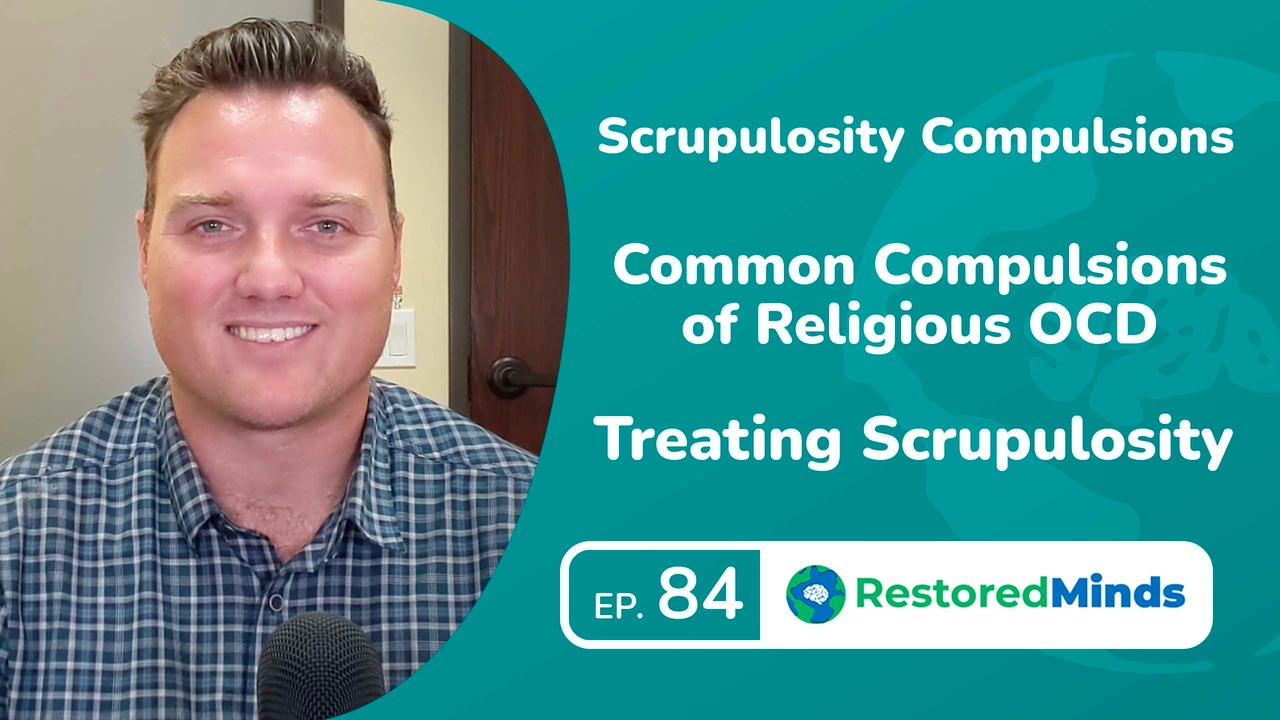Scrupulosity Compulsions - Common Compulsions of Religious OCD - Treating Scrupulosity
Apr 06, 2021
Understanding Scrupulosity: Common Compulsions of Religious OCD and How to Overcome Them
What Is Scrupulosity?
Scrupulosity is a form of OCD where the individual experiences excessive guilt and anxiety over their religious practices and beliefs. They often believe every thought and action must be perfect to be acceptable, causing a relentless cycle of compulsive behaviors aimed at easing the anxiety.
The Vital Distinction: Beliefs vs. Fear
A crucial distinction in managing scrupulosity is recognizing the difference between your religious beliefs and the fears related to those beliefs. As Matt from Restored Minds explains, treating this anxiety as a religious issue can keep you trapped in an unending loop. Instead, identifying it as a fear issue allows you to manage it more effectively.
Common Compulsions in Scrupulosity
1. Excessive Praying
One of the most common compulsions is repetitive prayer. While praying is a healthy religious practice, it can become problematic when used compulsively to seek reassurance or mitigate fear. Continuous praying about the same concern can prevent the resolution of the underlying anxiety.
2. Avoidance Behavior
Some individuals with scrupulosity tend to avoid religious settings like church to escape blasphemous thoughts. However, avoidance can reinforce the fear and keep the anxiety cycle going.
3. Seeking Reassurance
Repeatedly asking family members or religious leaders the same questions about faith and rituals is another common compulsion. This behavior, driven by fear rather than faith, perpetuates the anxiety loop.
4. Perfectionism in Religious Texts
Compulsively reading religious texts, feeling the need to follow self-imposed rules, or restarting readings due to perceived errors are also indicative of scrupulosity.
Steps to Overcome Religious OCD
1. Identify the Intention
Understanding why you engage in specific behaviors is crucial. Are your actions driven by faith or fear? This self-reflection helps in differentiating between genuine religious practices and compulsions.
2. Limit Compulsive Behaviors
Once you identify compulsive behaviors, work on limiting them. For instance, set specific times for prayer and reading scriptures without allowing them to dominate your day.
3. Seek Professional Help
Engaging with a mental health professional experienced in treating OCD can provide you with cognitive techniques to manage your fears effectively. Restored Minds offers various resources for those dealing with scrupulosity.
4. Gradual Exposure
Gradual exposure to feared situations, like attending church despite anxiety, can help reduce avoidance behaviors. Over time, this can decrease the power of the fear.
Conclusion
Scrupulosity can be a challenging experience, intertwining intimate religious beliefs with relentless fears. However, understanding the nature of your anxieties and adopting practical strategies can help you navigate this struggle.


